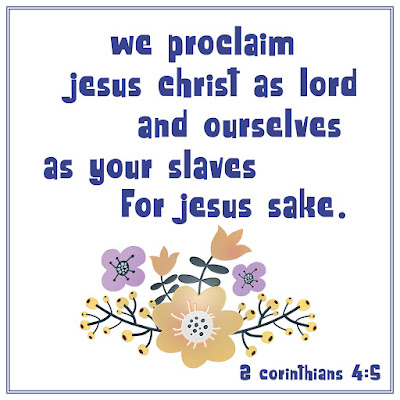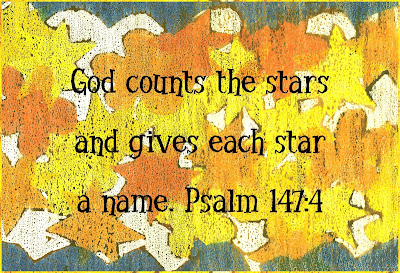and turn unto the Lord:
all the kindreds of the nations
shall worship before thee.
Psalm 22:27
Mark 8:31-37
31 Then Jesus began to teach them that the Son of Man must undergo great suffering, and be rejected by the elders, the chief priests, and the scribes, and be killed, and after three days rise again. 32 He said all this quite openly. And Peter took him aside and began to rebuke him. 33 But turning and looking at his disciples, he rebuked Peter and said, "Get behind me, Satan! For you are setting your mind not on divine things but on human things."
34 Jesus called the crowd with his disciples, and said to them, "If any want to become my followers, let them deny themselves and take up their cross and follow me. 35 For those who want to save their life will lose it, and those who lose their life for my sake, and for the sake of the gospel, will save it. 36 For what will it profit them to gain the whole world and forfeit their life? 37 Indeed, what can they give in return for their life?"
• Overview of Mark's Gospel
Currents / Recently in Mark
An Old English word for the season of Spring, Lent refers to lengthening days in the Northern Hemisphere. Lent is a season of repentance and re-orientation; Lent is a season of awareness that we receive life as a gift of God's grace and mercy, a season freely to offer grace, mercy, and life to others.
Today's reading concludes the first half of Mark's gospel. It comes before the Transfiguration event we studied two weeks ago in Mark 9:2-9.
For some reason the Revised Common Lectionary didn't include Mark 8:27-29 with Peter's confession of Jesus as the Christ (also prior to Transfiguration). Although it comes immediately before today's gospel, we'll hear it next autumn toward the end of the season of Pentecost.
• 8:27-28 Jesus asks his disciples, "who do you say that I am?" "Some say…" "But who do you say I am? 8:29 Peter answers, "Thou art the Christ."
Although it's important to listen to and consider what other people say, like Peter, ultimately each of us needs to talk and walk our own testimony of Jesus' identity.
Today's Gospel Reading
Today's scripture portion opens with Mark 8:31 that's sometimes referred to as Jesus' first passion prediction of the three in Mark's gospel. Notice that Jesus not only predicts his death; he also foretells his resurrection to new life after his death. Jesus then teaches his disciples about the way of the cross, about paradoxically losing their lives in order to gain life.
verse 31: "…and be rejected by the elders, the chief priests, and the scribes, and be killed, and after three days rise again." In our parlance that would be church leaders of every level and type and persuasion, seminary professors, The Ecclesiastical Establishment.
In verses 35, 36, 37 life is "psych" that we know from a wide range of English words. Psych implies psychological, emotional, volitional, relational, and every aspect of our humanity—similar to heart in Hebrew. This isn't the God-infused Zoë–life that brings us the name Zoë, nor is it the biologically basic bios. As with most events in Jesus' ministry that made it into the gospel accounts, this teaching probably wasn't a one-time occurrence; most likely Jesus repeated it on several occasions so his disciples heard it more than once.
Jesus talks about taking up the cross and following him—about giving up our own druthers and preferences to help take care of the needs of our neighbors. Jesus' cross becomes our cross. For most of us, service to the neighbor begins where we find ourselves here and now.
Jesus original context was the Roman empire that occupied his homeland and controlled every facet of existence. His ministry of love, healing, and compassion, his nonviolent resistance to religious, political, and economic powers was contrary to Rome's values and ultimately led him to the cross.
Where We Live – #Resist
As twenty-first disciples of Jesus baptized into his death and resurrection, our contemporary context is Jesus' current setting: We are what we eat: in the Lord's Supper we receive Jesus Christ the Bread of Life, Jesus Christ, the Cup of Salvation. We are the Body of the crucified and risen Christ; Jesus' cross of service to neighbor becomes ours cross of service as we give up our druthers.
Some interpretations of this text have ignored his charge to lose our lives for the sake of the gospel, for the possibility of God's reign in our midst. Sidelining our preferences and following Jesus means to recognize, to name, and to resist planetary and human suffering that happens because of neglect, indifference, empire, and exploitation. Denying and following means to embody God's love, mercy, compassion, and justice in the face of hatred, discrimination, injustice, and every dehumanizing force. In the contemporary vernacular, it means to #resist everything that results in death, desecration, destruction, and marginalization, etc. God calls us to act in ways that translate words into actions into results.
As Pastor Eugene Peterson says in his translation of today's responsive psalm, "from now on God has the last word – down-and-outers sit at God's table and eat their fill." Does that sound like Jesus? Does it sound like us?
Seven Marks
Martin Luther listed seven marks of the presence of the church—please take note of the seventh:
• the proclaimed word
• baptism
• Holy Communion / Lord's Supper
• keys and confession
• ordered ministry
• prayer—including the liturgy
• the cross, "suffering and persecution"
Lent 2B 2006
• Sermon-Reflection from 2006 on the First (Genesis 17:1-7) and Second (Romans 4:13, 16) readings for Lent 2B








